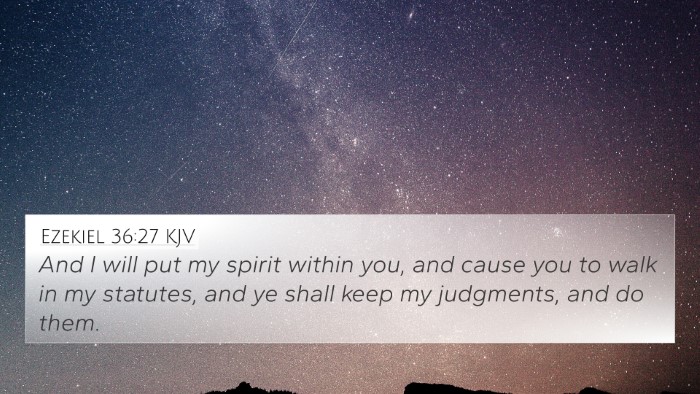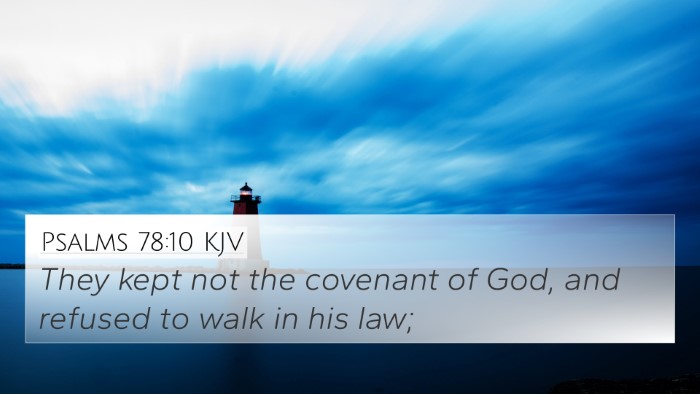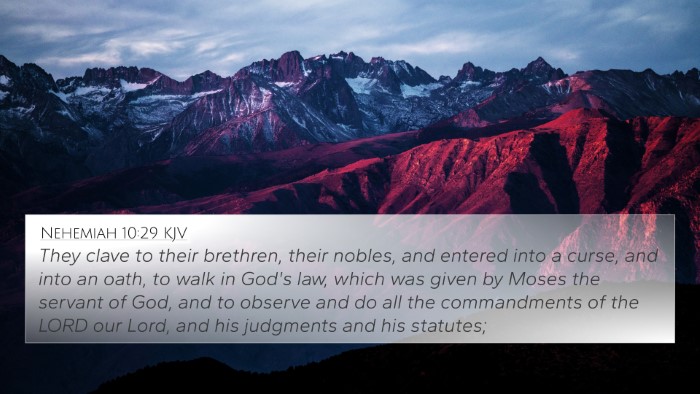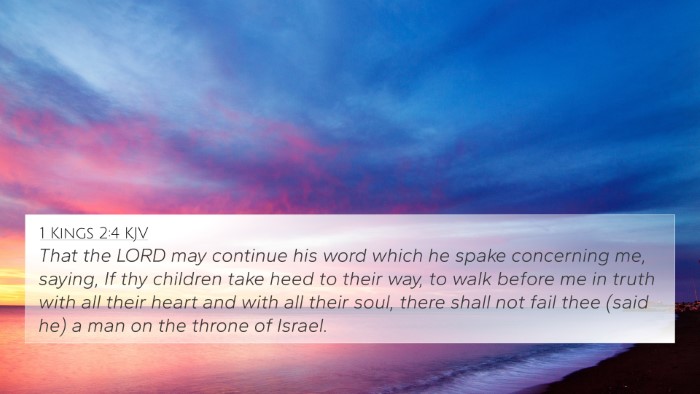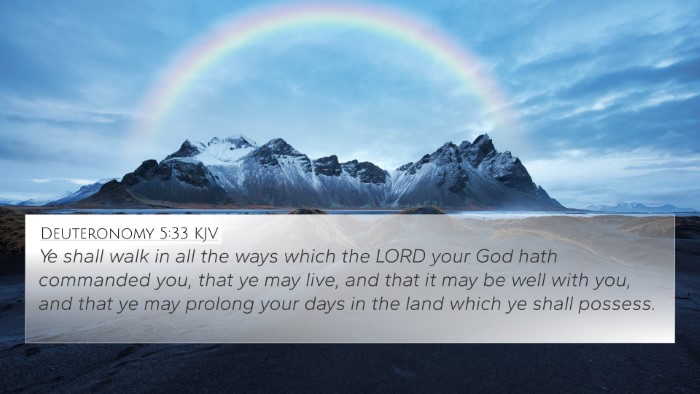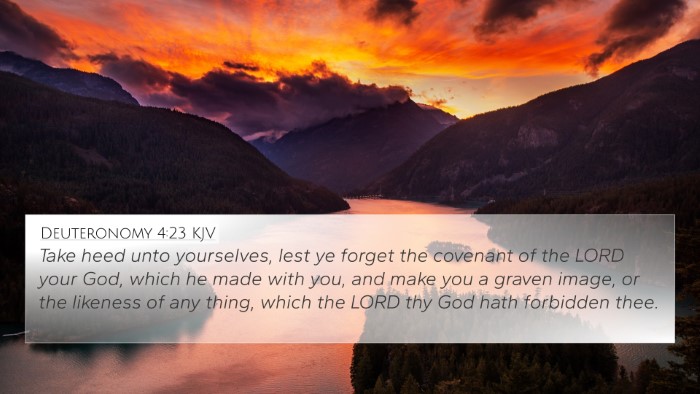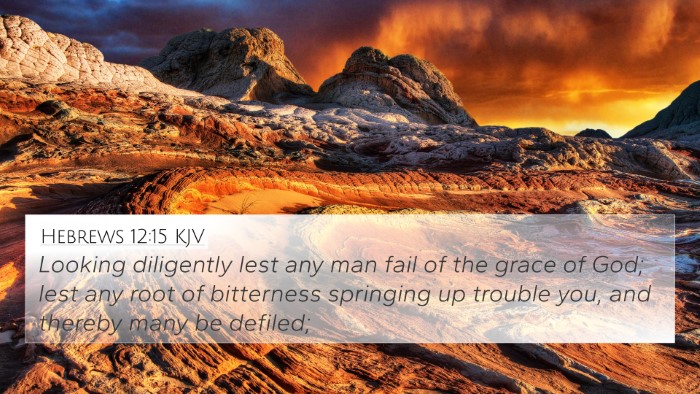Understanding 2 Kings 10:31
Bible Verse: 2 Kings 10:31 - "But Jehu was not careful to walk in the law of the Lord God of Israel with all his heart: for he departed not from the sins of Jeroboam, which made Israel to sin."
Summary of Meaning
This verse reflects on the reign of Jehu, emphasizing his failure to fully commit to following God's ways. While Jehu carried out significant reforms and judgments against the house of Ahab, his actions were marred by his continued adherence to the sins of Jeroboam, the first king of Israel, highlighting a deeper issue of compromise in leadership and faithfulness to God.
Commentary Insights
-
Matthew Henry:
Henry points out that Jehu's zeal in destroying the idolaters was commendable, yet his failure to adhere to God’s law completely undermined his achievements. He did not fully abandon the idolatry introduced by Jeroboam, which led Israel astray.
-
Albert Barnes:
Barnes emphasizes that Jehu's partial obedience reflects the dangerous tendency of many leaders who may enact reforms superficially while retaining significant loyalties to past wrongs. His lack of caution in walking in God's law shows a flawed heart.
-
Adam Clarke:
Clarke analyzes the implications of Jehu's actions on future generations. His failure to eradicate Jeroboam’s worship practices not only affected his reign but created a legacy of sin that persisted in Israel long after his rule.
Lessons from 2 Kings 10:31
1. The Danger of Partial Obedience: Jehu's story warns against a half-hearted commitment to God. True faith requires total dedication, as partial obedience can lead to significant consequences.
2. Leadership Accountability: Leaders influence their followers. Jehu’s failure to remove idolatry demonstrates how leaders can stumble their people into sin.
3. The Continuation of Patterns: The mention of Jeroboam's sins illustrates how past sins can cast long shadows over future generations, leading to ongoing struggles against idolatry and turning away from God.
Cross References
- 1 Kings 12:28-30: Jeroboam's establishment of idol worship in Israel.
- 2 Kings 10:29: Jehu's continuation of Jeroboam's sins.
- 2 Kings 17:21-22: The consequences of Israel’s sin against God, relating to Jeroboam.
- Hosea 1:2: God’s lament over Israel's idolatry and the unfaithfulness of kings.
- Matthew 7:21-23: The importance of doing the will of God compared to mere actions.
- Revelation 3:15-16: The warning against being lukewarm, paralleling Jehu's indecision.
- Deuteronomy 6:5: The call for wholehearted devotion to God’s commandments.
Conclusion
In studying 2 Kings 10:31, we discover the vital importance of an undivided heart toward God, particularly in leadership. Jehu's failure serves as a cautionary tale about the effects of idolatry and the necessity for sincerity in faith and practice.
Tools for Cross-Referencing
Utilizing Bible concordances and reference guides can enhance your study. For instance, how to use Bible cross-references effectively could deepen your understanding of the connections between the Old and New Testaments.
Various Bible cross-reference systems and comprehensive Bible reference resources can aid in identifying and understanding thematic links, enriching personal study and sermon preparation.
Finding Related Verses
When exploring connections, consider questions like what verses are related to 2 Kings 10:31? Use tools that facilitate cross-referencing to uncover rich insights regarding the nature of disobedience and its implications throughout scripture.








